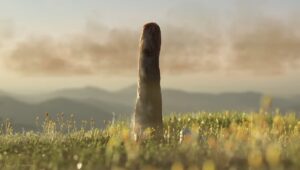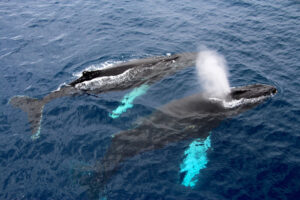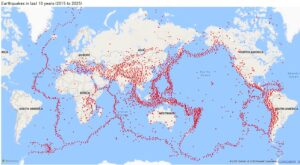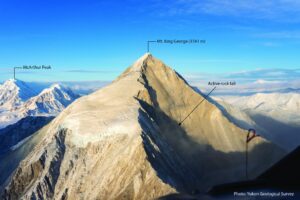Rosie Stancer, 61, is trekking 600km across Uzbekistan’s Aralkum Desert. If successful, she and her teammate will be the first to trek across the world’s newest desert. The Aralkum is the baking salt flat left behind after 90 percent of the Aral Sea dried up in the last half-century.
Stancer, the Queen’s cousin, is walking with Pom Oliver, her previous teammate to the North and South Poles.

Stancer has trained with tires over the lockdown. Photo: @rosiestancerexplorer
Stancer pointed out that no one has previously crossed the Aralkum simply because until recently, it was underwater. “There’s nothing heroic in [crossing a desert first],” she says.

A ship, now hundreds of kilometres from water, lies rusting in what is now the Aralkum Desert. Photo: Jerry Kobalenko
The Aral Sea initially covered 68,000 sq km. It used to be the fourth-largest inland body of water in the world. But it was shallow, surrounded by desert, and had only two feeder rivers, the Amu Dayra and Syr Dayra. In the early 1960s, the Soviets diverted both of these to irrigate a cotton industry. Cotton is a thirsty plant, not the ideal crop where rainfall is scarce. Desertification began, and soon the Aral Sea shrank into two much smaller lakes; the North Aral Sea and the South Aral Sea.

A satellite image from August 19, 2014 shows how much the Aral Sea has shrunk compared to the 1960 shoreline (yellow boundary). Photo: NASA
An anthrax island
Stancer and Oliver began their west-to-east desert crossing on August 21. Their route follows the fringes of both Aral remnants before they pass Vozrozhedenyia and Barsakelmes Islands and nature reserve. Their final stretch meanders through the small communities along the original eastern shoreline of the Aral Sea. They expect the crossing to take four to six weeks.
They are hauling their supplies on specially designed carts with big, low-pressure tires that can handle both soft sand and sharp stones. Laden with gear, food, and water each cart weighed around 100kg at first. Even in late summer, temperatures may reach 40˚C.

Pom Oliver checks medical supplies, including an oximeter, for the journey. Photo: @rosiestancerexplorer
They will also carry masks to protect themselves from severe dust storms. The dust in this area notoriously contains large amounts of pesticides and fertilizer, and Vozrozhdeniya used to be a testing ground for Soviet biological weapons, including anthrax. Both women are taking medication to help protect themselves from “a whole cocktail of nasties out there”.

Loading up the cart before setting off. Photo: @rosiestancerexplorer
Self-amputated her toes
Though Stancer is an experienced explorer, she told Cervest, “This is my first expedition [where] I genuinely do not know what we will find and what we will learn.”
Previously, Stancer completed five polar expeditions. During her solo trip to the North Pole in 2007, she had to self-amputate two toes because of frostbite. In 2018, she led a team along the length of the Wahiba Sands in Oman.






